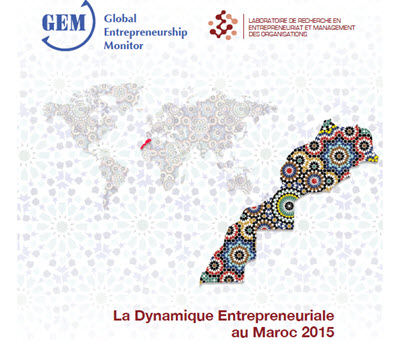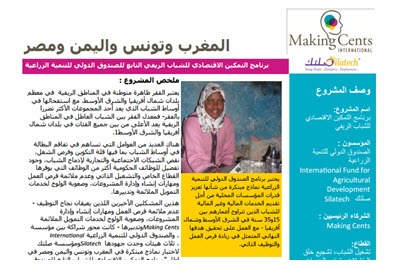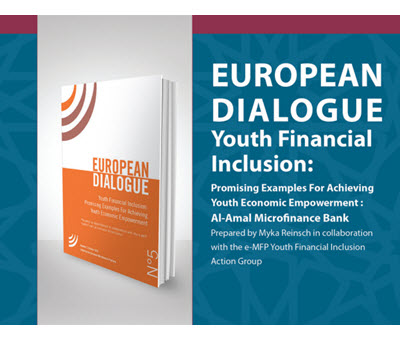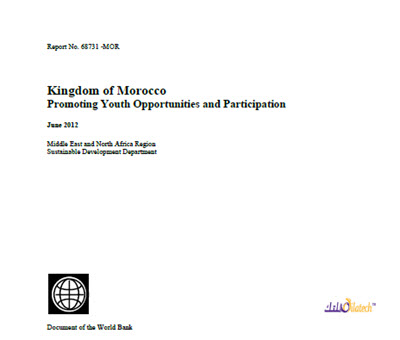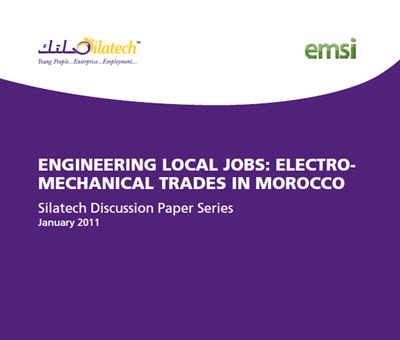-
Collaboration between Silatech, EFE-Maroc, and the Bill & Melinda Gates Foundation leads to the employment of over 700 young men and women in the Moroccan job market in its first year
Jul 03, 2022Silatech, an international socio-economic development non-profit organization that connects youth to jobs and economic opportunities, announced a new milestone in Morocco with its partners; the Bill & Melinda Gates Foundation and EFE-Maroc. Over 700 young men and women have been placed into jobs in various sectors including education, sales, food and beverage, and the automotive industry. The “A Chance to Reset: Reskilling, Empowerment towards Sustainable Employment to Thrive” project aims to bridge the skills mismatch and tackle the high youth unemployment rate in Morocco, especially after the Covid-19 pandemic. The project targets the placement of 8,175 youth into high demand jobs. “The pandemic has been catastrophic for young people around the world, but it has accelerated the pace of change for organisations like Silatech to come back stronger than before. We believe that partnerships and innovative solutions are the ultimate way forward to tackle the rising global issue of youth unemployment”, stated Silatech CEO Hassan Ali Al-Mulla. This 4-year project aims to combat the high rates of youth unemployment and underemployment that Morocco faces within its youth demography by helping them develop their skills as well as their technical expertise based on the job market needs. “Since September 2021, and thanks to the “RESET” project, EFE-Maroc has been able to train thousands of youth across Morocco and place more than 700 job seekers into employment. Our goal is to reach 2,000 placements annually, which is achievable when we have a strong and agile ecosystem as is the case for Morocco and this is thanks to its 4 main pillars: committed public partners, a motivated private sector, high potential young people and a dedicated civil society”, said Houda Barakate, EFE-Maroc CEO. James Carty, Deputy Director for Middle East and East Asia, at the Bill & Melinda Gates Foundation, said, “We are proud of what has been accomplished by this partnership with Silatech and EFE-Maroc in its first year. Programmes such as the “RESET” are extremely important, particularly in a country where 43% of the population is below the age of 24. The pandemic is the most serious health crisis the world has experienced in a long time and there has never been a greater need to tackle employment with focus and innovation. “ Various activities have been held to achieve this important milestone and facilitate access to the job market for its beneficiaries. This included organizing open days in different cities, and a virtual job fair which gathered job seekers with employers from different sectors and across the country with the support of government institutions like the National Agency for the promotion of Employment and Competencies (ANAPEC). This project is a step forward for Morocco's youth by providing them with the necessary training and skills required in today's job market. Through helping to strengthen the skills of young people, Silatech and its partners are empowering an entire generation to grow not only their career but also their country. The success of this project in Morocco can hopefully be replicated in other countries that face similar challenges concerning youth unemployment and underemployment.Read More -
Entrepreneurship Dynamics in Morocco Gem 2015 National Report
Mar 05, 2017This national report discusses the key aspects of entrepreneurship dynamics in Morocco based on the Global Entrepreneurship Monitor Survey conducted in 2015.Read More -
IFAD Rural Youth Economic Empowerment Program
Oct 30, 2013This project overview explains the IFAD Rural Youth Economic Employment Program, which aims to increase the employment and self-employment of youth aged 15-35 in Morocco, Tunisia, Yemen and Egypt by 2016. Rural poverty is endemic in most of the Middle East and North African countries and youth are one of the groups that suffer most – unemployed rural youth have one of the highest incidences of poverty of all groups in MENA. There are many drivers for youth unemployment, including training and labor market mismatch, lack of social and business networks for youth, a bias toward government jobs over private sector jobs and self-employment, inadequate employability and entrepreneurship skills, and insufficient access to and use of appropriate financial services and capabilities. These last two constraints to successful employment – inadequate employability and entrepreneurial skills and insufficient access to and use of appropriate financial services and capabilities - are the focus of a partnership between Making Cents International, the International Fund for Agricultural Development (IFAD) and Silatech. Together, we will test innovative models in Morocco, Tunisia, Yemen and Egypt in the “IFAD Rural Youth Economic Empowerment Program” that have potential for scale up and sustainability. In the process, the program aims to increase the employment and self-employment of youth aged 15-35 by 2016.Read More -
Al-Amal EU Dialogue
Feb 28, 2013This publication is a set of examples of promising youth financial inclusion programs from around the world. It outlines and compares the lessons emerging from them. The purpose of this publication is to contribute to the microfinance sector’s collective knowledge base by sharing examples of promising youth financial inclusion programs around the world and the lessons emerging from them. By sharing case studies that illustrate a variety of service combinations, approaches and delivery models, the European Microfinance Platform (e-MFP) seeks to provide the reader with useful reference points for offering savings, credit and non-financial services (especially training and mentoring) to youth. The following examples have been selected not to make a case for a particular approach and not necessarily because the organizations have the right formula – in most cases the products and initiatives are too recent for conclusions to be drawn about their long-term sustainability and demonstrable impact on youth lives and livelihoods. But members of the e MFP Financial Inclusion Action Group believe these cases offer valuable lessons learned and experiences to consider as the practice of youth financial inclusion expands and evolves.Read More -
Kingdom Of Morocco: Promoting Youth Opportunities And Participation
Jun 20, 2012Prepared just prior to the Arab Spring, this report anticipates the demands for social and economic inclusion articulated by Moroccan young people especially following February 2011. Since then, these demands have been amplified and reached a new level of urgency. This study adopts a mixed method approach combining an innovative quantitative instrument with qualitative and institutional analysis. The goal is to provide policy makers with a nuanced analysis of barriers to employment and active civic participation encountered by young people aged 15 to 29 years so as to tailor youth interventions more effectively. It identifies a wide range of recommendations available to support youth-inclusive activities and policies, and a roadmap for integrated youth investments. This report was produced by the World Bank and financed by Silatech. The full report can be accessed here.Read More -
Engineering Local Jobs: Electromechanical Trades In Morocco
Jan 31, 2011This discussion paper highlights areas where strategic investment in Morocco is likely to create jobs and have strong economic returns. Specifically, it focuses on targeted investment that would ease the burden on industry growth by producing resources currently imported from outside of Morocco. Morocco is keenly aware and proactively pursuing most of the areas where gaps in its economy exist. However, one area of opportunity is developing skilled human capital—many Moroccan industries have sought to make up for this shortage by importing skilled workers; other industries have not and are suffering as a result. Although Morocco has a large labor supply, much of it is unskilled. Moreover, for those with skills, there are often structural barriers to enter the workforce. Across the economy, expertise is brought in from outside of the country, but nowhere is this more evident than in engineering. In this study, we look at engineers and workers in electro-mechanical trades, which provide much of the work necessary to support newly built infrastructure. These occupation clusters are important to the economy and are promising targets for investments in training. In particular, electro-mechanical trades represent a short-term goal for people looking for work, while also being a first step toward a long-term goal of full engineering training because of a common base level of skills. Successes and Challenges In many ways, Morocco has been a recent economic development success story. The government has spearheaded corporate privatization and financial reforms, signed free trade agreements, created world-class seaports, aided the modernization of existing industries, expanded modern infrastructure, marketed and provided opportunities for offshoring, helped establish Morocco as a top global tourist destination, and encouraged a well-educated population. As a result of these investments and other reforms, Morocco has expanded output and seen an increase in employment in recent decades. However, the nation faces some challenges: High government debt Individual tax rates of 40% on those earning more than US $1550 per month High population growth Very low employment-to-population ratio of 46% Urban youth unemployment estimated as high as 33% In addition, key sectors of the economy remain susceptible to outside forces: The agricultural sector accounts for approximately 45% of total employment but only 15% of GDP. In years with scant rainfall, GDP falls anywhere from 1% to 6%. In years of bumper crops, GDP increases by 1% to 4%. Tourism is expanding with construction of several high-end coastal resorts, but the sector has also been hit hard by economic downturns and creates low-skill, low-wage jobs. Morocco is the largest exporter of phosphorous and allied chemicals in the world, an activity which accounts for approximately 12% of all exports. The nation imports nearly 90% of its annual energy needs. The industrial sector accounts for 30% of GDP but only 20% of the workforce. Focus on High and Middle Skills Low-skill workers are not considered in this report because from an industry perspective they are the easiest workers to hire. Middle- and high-skill workers are much harder to come by because they need to have specific skills that are not in large supply. With low-skill workers, an efficient worker may be twice as productive as an inefficient one, but with middle- and high-skill workers, efficient workers may be five or ten times more productive. Industry success relies on the smaller group of skilled workers performing their jobs well, which drives the output of the industry as a whole. When industries cannot find high-quality workers, they have three options: a) import labor, b) hire workers of lesser quality who will hurt performance, or c) not hire at all. Industries in this position also will have fewer low-skill workers, as industry growth and capacity are directly impacted by a lack of skilled workers. Lifting constraints, then, on middle- and high-skill workers opens doors for low-skill workers.Read More


